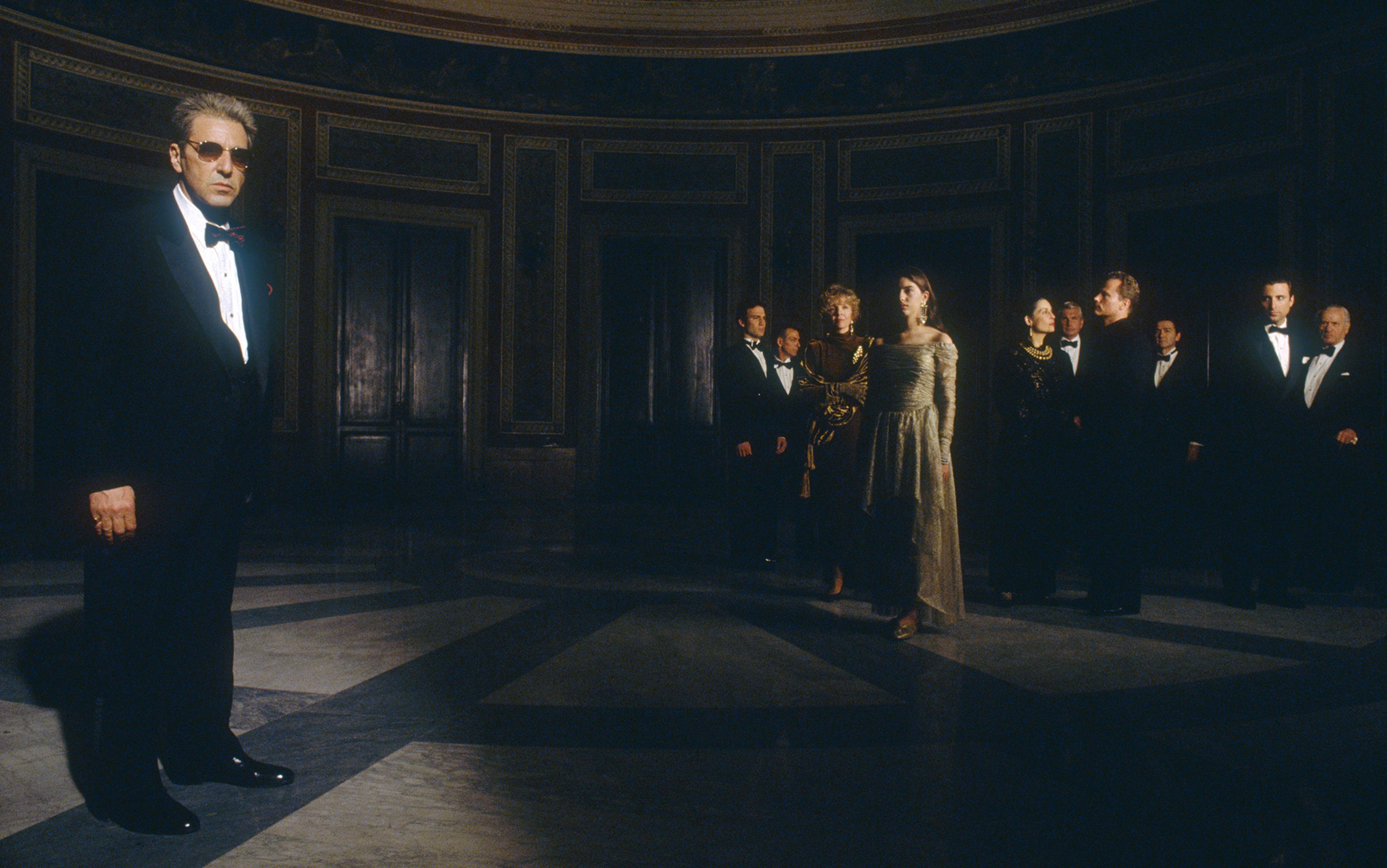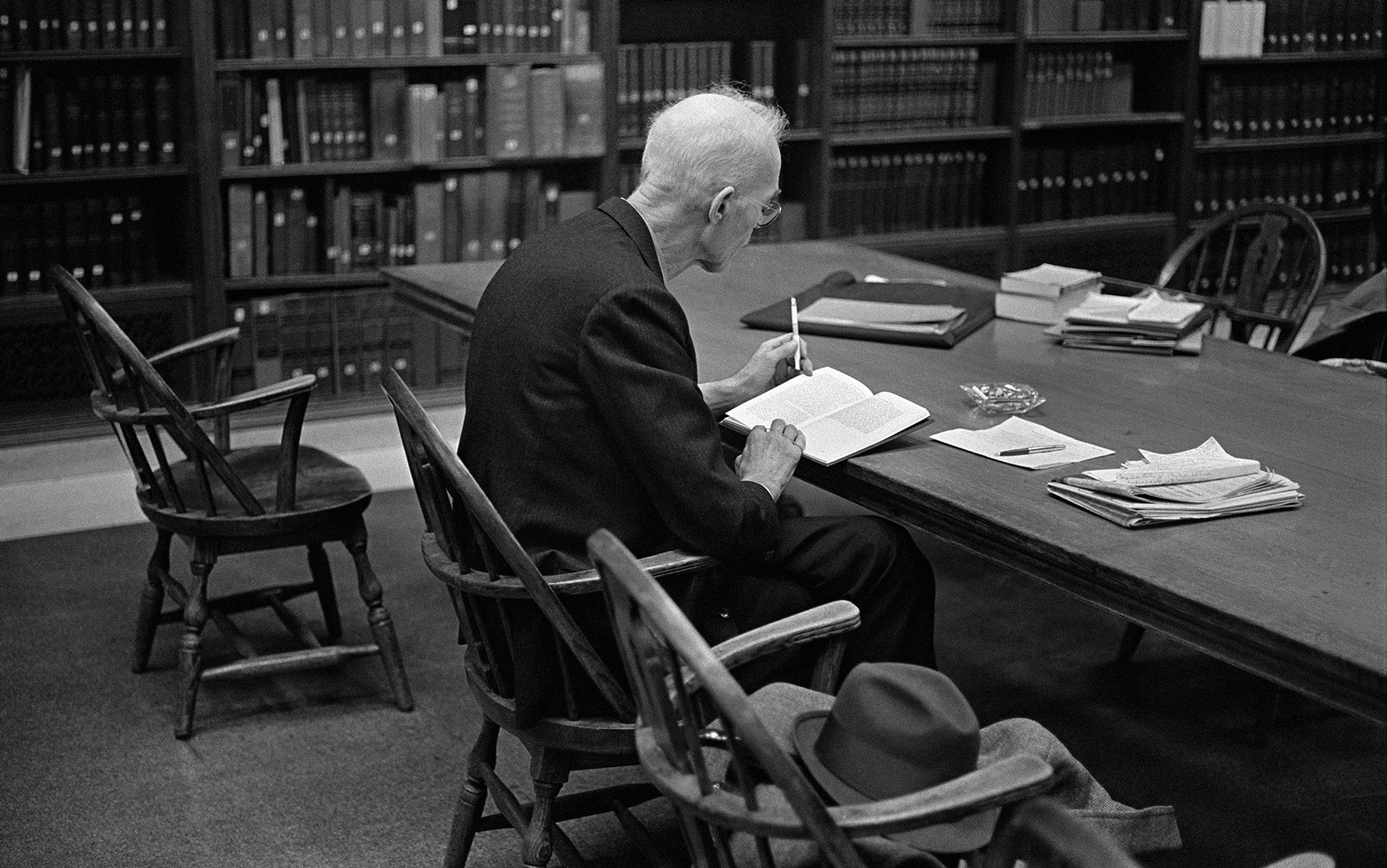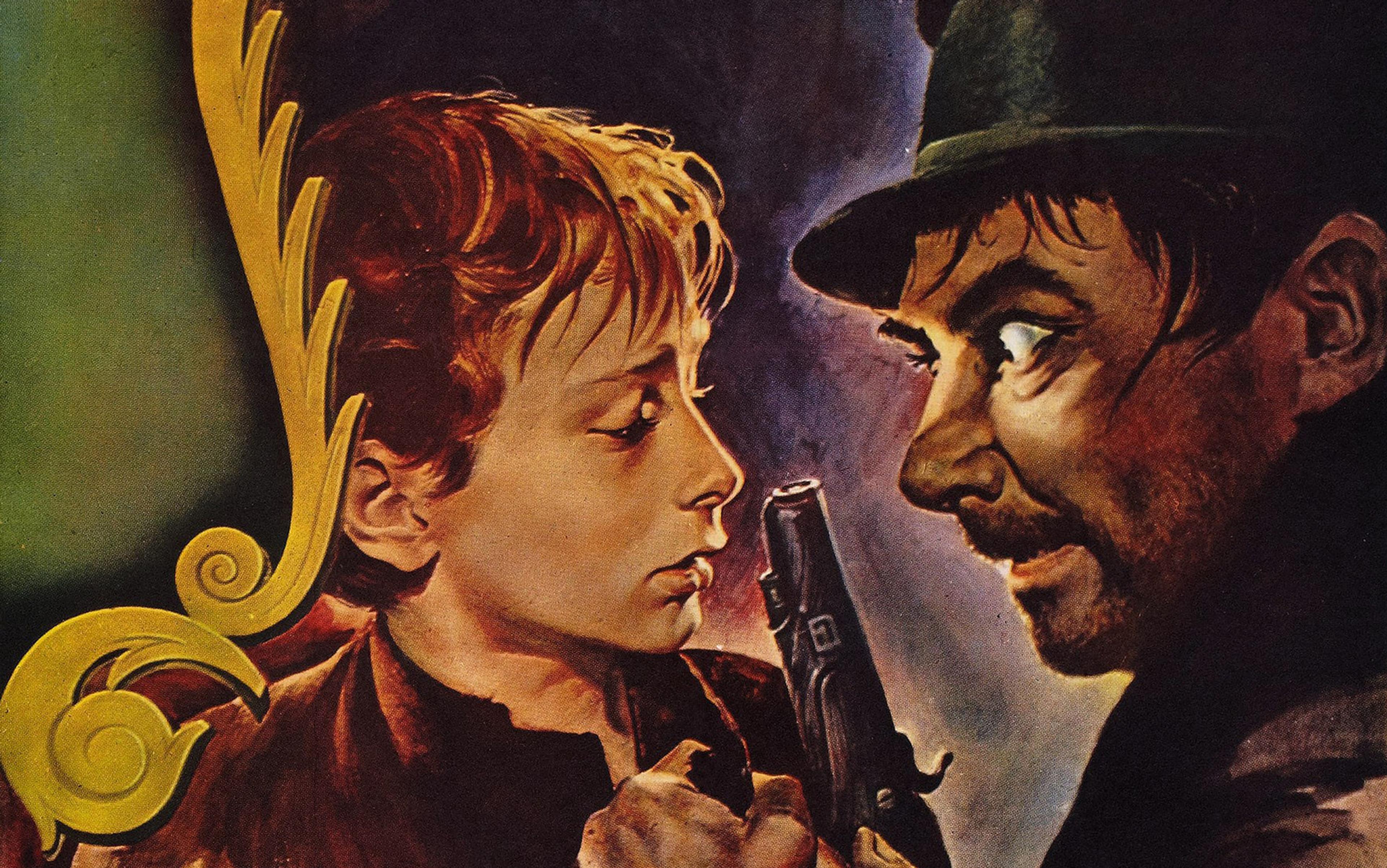If you wanted to write a screenplay for a blockbuster film, Aristotle is the last person you might ask for advice. He lived more than 2,000 years ago, spent his days lecturing on ethics and earthworms, and never saw a movie in his life. But some of the best contemporary writers of stage and screen, such as Aaron Sorkin and David Mamet, think that this ancient Greek philosopher knew exactly how to tell a gripping story for any age. ‘The rulebook is the Poetics of Aristotle,’ Sorkin says. ‘All the rules are there.’
Aristotle seems like an unlikely guide for storytellers. He was born in the wild land of Macedonia in northern Greece where his father was serving as court physician to the local king, the grandfather of Alexander the Great. After his parents died while he was still a teenager, Aristotle travelled to Athens to study with Plato, the student of Socrates and most famous philosopher of the day. Plato was a brilliant theorist but had little interest in the practical and experimental work that Aristotle loved. The younger man dissected oysters and waded through swamps collecting tadpoles, basically inventing the science of biology, while Plato was busy discoursing on the invisible reality underpinning the cosmos. After Plato died, Aristotle returned to Macedonia for a time to become the tutor of young Alexander, then founded his own school in Athens called the Lyceum, devoted to research and teaching.
In the following years, Aristotle wrote and lectured on every subject imaginable, from astronomy and metaphysics to politics and zoology. Sadly, none of his complete and polished writings survive, only lecture notes. But these notes, sometimes miscopied by later scribes, became the sourcebook of Aristotle’s teaching that would change the world and become the foundation of almost every discipline studied in universities today.
One short work of Aristotle’s that managed to survive the centuries is called the Poetics. In spite of the title, it is about much more than poetry in the modern sense of the word. In ancient Greece, all kinds of literature were written in verse, from epic tales and tragic drama to obscene comedies. Thus the Poetics is really a guide for storytelling of every sort. But the book suffers from an even more mangled manuscript history than most of Aristotle’s writings, with missing and rearranged sections, logical gaps, and the loss of its whole second half on comedy. The fact that so many people through the ages have struggled to study this short work and learn from it is a testimony to its power, even in its jumbled form.
I’ve taught the Poetics to college students many times over the years and been amazed at how often they find it a transformative experience for their own writing and reading. There is simply nothing like this remarkable book for making us think carefully about what makes a story work well, whether we’re composing our own or trying to appreciate Shakespeare or The Shawshank Redemption (1994). But I’ve been so saddened over the years by those bright students who gave up on the Poetics out of sheer frustration that I decided to translate it anew from the ancient Greek, and try to organise it in a way that is understandable for a modern audience. The result – entitled How to Tell a Story (2022) – is a new approach to Aristotle’s Poetics that strives to be a faithful and accurate translation but also a useful handbook for writers and readers. Some scholars might scoff at the idea of presenting the Poetics as a guidebook for non-specialists, but Aristotle’s ideas are so powerful that they beg to be available to a wider audience. You may not agree with everything Aristotle says, but consider his ideas, and see if you don’t think they’re as fresh and brilliant today as they were 2,000 years ago.
Before he lays out the rules of storytelling, Aristotle puts forward some basic principles about what we’re doing when we make any kind of art, whether it be literature, music, painting or dance. He says, most importantly, that everything we create is a kind of imitation (in Greek, mimesis) of life, but using different types of media, objects and manners, whether colours on a canvas, sounds in a concert hall, or words on a page. This doesn’t mean art is a simple mirror of reality – far from it – for we shape the images, sounds or words to make some particular point and tell our own unique story. But it also means that whatever you create must be connected logically to the real world around you and reflect life to some recognisable degree if you want your audience to hear what you have to say.
Aristotle’s rules don’t work well for every type of storytelling. His primary focus in the Poetics is on tragedy and drama – like his favourite play Oedipus Rex by Sophocles – that can be presented in a couple of hours. He has great respect for lengthy Lord of the Rings-style epics, like Homer’s Iliad and the Odyssey, but stories that take days to tell aren’t his main focus. This makes him particularly well-suited for writers working on a movie or one-off television script rather than an episodic series. You can, of course, apply his rules to longer works, like all six seasons of J J Abrams’s TV series Lost (2004-10), but only if you break them up into weekly stories.
Aristotle focuses on single tragedies because of the immediate payback and emotional impact these stories have on an audience when they’re done well. As he explains in one of the most famous statements from the Poetics, what you want to achieve most as a writer of drama is to evoke pity and fear in your viewers – that is, empathetic pity (‘That poor man’) followed by jolting realisation and fear (‘Oh my God, that could be me!’) When you do this right, your audience walks out of the theatre different from when they entered, having experienced an emotional cleansing of sorts – what the Greeks called catharsis. This is the true power of storytelling.
The most common error in films that the Greek philosopher would condemn is a weak ending
So how does Aristotle say that a writer should do this? The first of his key concepts of storytelling is quite simple but too frequently ignored in scripts:
A story that is complete must have a beginning, middle, and ending.
A beginning doesn’t necessarily follow from anything before, but other events naturally follow it and proceed from it. An ending, on the other hand, naturally or in general follows from something else that comes before it, but has nothing that comes after it. A middle follows from some other event and also has things that occur after it.
As is often the case with Aristotle’s rules, this seems so obvious that you might wonder what the fuss is about. But consider how many movies you’ve seen that lack a clear and logical beginning to introduce the action and characters. Audiences will allow you some leeway if you want to reveal a backstory in flashbacks, but if you don’t cover the basics at the start of your story, viewers will become confused and bored. There are also plenty of films that start strong but lose their way somewhere in the middle – a fundamental mistake according to Aristotle. But the most common error in films that the Greek philosopher would condemn is a weak ending, in which the screenwriters don’t know how to bring the story to a proper close. As he says, the worst stories will resort to a deus ex machina ending with some untenable twist, as when a slain hero returns miraculously to life or the alien invaders all suddenly die. These are the failings of lazy writers who don’t bother to plan their script before they start. Aristotle says not to insult your audience this way or you will not win any laurels at the next festival of Dionysus.
Some of us like to believe we are divinely inspired by the Muses when we write, and need only to take pen in hand to produce a masterpiece. Aristotle says this is a foolish idea. Writing is hard work and good writing requires a detailed plan, like any other job done well:
Whether drawing on an earlier story or creating one, a writer should first outline the overall structure of the story, then fill in the episodes and details.
Another lesson that Aristotle teaches is one that far too many filmmakers ignore – spectacle must always be secondary to storyline. For the ancient Greeks, this meant a stage with too many props and decorations, but it holds equally true for movies. Whether a cast of thousands in Stanley Kubrick’s classic Spartacus (1960) or cutting-edge digital graphics on the contemporary screen, elaborate pageantry and special effects are meant to serve the narrative. Fantastic battle sequences and crashing cars cannot make up for a weak plot, and in fact are a wearisome distraction when the story is lacking (and, yes, I’m talking about you, Star Wars prequels). Even the most avid fans will grow tired of a film that is all flash and bang with no substance. This doesn’t mean that special effects are a bad idea in a movie, far from it. You can have both a strong storyline and amazing CGI in a film like Avengers: Endgame (2019), but the folks at Marvel were smart enough to make the spectacle always serve the story.
But how long should a movie or television show be? Aristotle has a wonderful analogy for talking about the proper length of a story. Drawing on his background as a biologist, he says that watching a story unfold is like looking at an animal. Your audience must be able to clearly see the whole thing at once to appreciate it. If a plot is like some gigantic sea creature that your audience can’t keep all at once in their mind’s eye, they will lose interest in it. If it’s too small, like a tiny crustacean on an Aegean beach, it isn’t going to engage anyone, either. Aristotle prefers an extended story when possible:
A longer plot is usually better and more beautiful, provided that it can still be held in the memory all at once. A simple definition of the proper length of a story would be that it is long enough to allow a change from good fortune to bad or bad fortune to good, in accord with what is probable or necessary.
But there’s also a reason why we have an Oscar for short films. As Aristotle would certainly appreciate, Pixar and other talented studios can create amazing and complete stories that last no more than five minutes. What matters isn’t so much how long a film lasts as how carefully the time is used. As a writer, you have to find the magic length that gives you enough pages to properly develop the plot, but not one so long as to bore your viewers.
There’s nothing more disturbing and relatable than a fight between people who love each other
The most controversial rule that Aristotle gives in the Poetics is that character is secondary to plot:
Plot is the first principle and, so to speak, the soul of tragedy. Character comes second. Painting is much the same way. If an artist were to cover a surface with the finest and most beautiful colours at random, it would provide the viewer with less pleasure than a simple outline of an object.
Some modern critics might say that Aristotle doesn’t think characters are important, but this is a misreading of the text. In fact, he believes deeply in rich, well-developed characters inhabiting a story, but those characters must always serve the storyline, not vice versa. Granted, some very talented writers and directors believe that Aristotle is simply wrong about this rule and that characterisation is everything in a story, but I think Aristotle is correct. Consider for a moment the best films you’ve ever seen and whether they are ultimately plot- or character-driven. The Usual Suspects (1995), for example, has some of the most intriguing characters I’ve ever seen in a movie, but they are ultimately in service to the plot of the film. The same holds for Casablanca (1942), Black Panther (2018) or Thelma and Louise (1991). I will grant that characters may in fact be more important than storyline in great comedy like A Funny Thing Happened on the Way to the Forum (1966) or The Big Lebowski (1998) but, since the second half of the Poetics on comedy is missing, we don’t know if perhaps Aristotle would have thought so too.
Just because Aristotle thinks plot is ultimately more important than character doesn’t mean that the players in your story are unimportant. One simple but profound observation that Aristotle makes is that any writer who wants to hold the attention of an audience needs to centre the story on conflict between characters. Even if the plot of your movie is based on saving the Earth from a rogue comet, the struggles between your characters are what matters most. Why conflict? Because a story in which everyone gets along beautifully will be as boring as watching paint dry. But who should be in conflict? You could have a straightforward story about a princess who battles an evil villain and prevails, but this is the plot of an entertaining children’s cartoon. If you want your story to appeal to grown-ups, make the conflict about the relationships everyone knows are the most fraught with drama:
The suffering that occurs between those who are in close relationships is best, whether brother against brother, son against father, mother against son, or son against mother.
Your story doesn’t need to be as dark as the Oresteia trilogy by the ancient Greek playwright Aeschylus, in which family members are literally killing one another at every turn, but there’s nothing more disturbing and relatable than a fight between people who love each other (we’ve all been at that Thanksgiving dinner). Parents and children, husbands and wives, best friends – conflicts between these characters are the ones that will tear your heart out and make you want to see how the story ends.
Another key point for Aristotle about tragic characters is how they should fare overall in the arc of a dramatic plot. He says it is vital for a character to change from the beginning to the end of a story; if you want to achieve the maximum effect on an audience, that should be your goal as a writer. But there are different kinds of changes that are possible depending on the fundamental nature of a character. Granted, no one in a story should be two-dimensional and written as simply good or bad, but characters tend to fall into one or the other category. Aristotle, being the master of logic he is, lays out some of the possibilities for character change over the course of a story. He says that you can have a bad person suffer a bad outcome, but this is not very interesting to anyone over the age of five. You could also have a thoroughly good person suffer a horrendous ending, but this will leave your audience full of shock and disgust, not pity and fear. Similarly, if you have a really evil person triumph at the end of your story, the viewers will throw popcorn at the screen, and no one will ever hire you again. What remains is the character change that Aristotle says works best:
We are left then with the best tragic character being someone in-between – that is, neither terribly wicked nor a shining example of virtue. This person undergoes a downfall not through great wickedness or vice, but because of some mistake or weakness.
In other words, the best drama is about someone like you or me – or at least how most of us like to view ourselves – an imperfect but basically decent person who pays their taxes, likes puppies, and will gladly help a friend in need. But this character has a secret flaw, like any of us might, that makes them fall short in life and come to a tragic end. The flaw doesn’t have to be as devastating as the hubris of Oedipus that causes him to unknowingly murder his father and have sex with his own mother, but it needs to be bad enough to lead the character to make some very poor choices, whether because of anger or addiction or even love gone sideways.
Stay out of the story and let your characters carry the action
‘Show, don’t tell’ is another a basic rule of creative writing classes that comes straight from Aristotle. In other words, don’t use narration unless you really have to. Aristotle’s model in this, as for so much else in the Poetics, is the earliest and greatest Greek writer of epic:
Homer deserves praise above other poets for many reasons, but most of all because he knows when not to use his own voice. A storyteller should say as little as possible as a narrator, since this isn’t imitation. Other authors insert their own voices in their stories throughout and use imitation seldom if ever. But Homer, after speaking in a very brief introduction, steps back and brings forward a man, woman, or some other interesting character to take over the narrative.
Narration can work well in the best movies – think Apocalypse Now (1979) or Y tu mamá también (2001) – but it’s very tricky to get right. Unless you have an extraordinary ear for it, stay out of the story and let your characters carry the action.
It also goes without saying that, as a writer, you need to have imagination, but Aristotle adds that you shouldn’t even bother taking up your pen and papyrus unless you have the ability to imagine a story in your head and feel in your soul what your characters are experiencing:
The writers who are most successful are those who by nature are able to identify with their characters and are gripped by their emotions. The truest anger or distress is conveyed by authors who actually feel anger or distress in their soul. Thus the best writers are those who are either highly gifted or insane.
And finally, even troubled writers need to have a firm grip on logic and reason in their writing. Aristotle has no patience for stories with irrational elements:
As far as possible, stories shouldn’t contain any unbelievable parts … The excuse that a plot would be ruined without unbelievable elements is ridiculous, since there’s no reason to include them in the first place. If a writer includes some irrational element and there was a reasonable alternative available, this is unforgivable.
It’s easy to think of good shows that go wrong at times on this point – eg, Daenerys burning down King’s Landing in the TV series Game of Thrones (or, for that matter, when Bran becomes king of Westeros) – but you probably have your own list of favourites.
There are so many more lessons that Aristotle can teach modern writers, but you can discover these for yourself as you work your way through the Poetics. Aristotle’s rules are timeless for the simple reason that our love of stories told well doesn’t change through the ages. They worked for Homer and Sophocles, and they will work for you.






